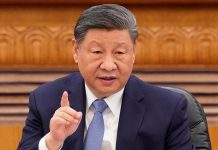

Each time a country goes through minimum wage negotiation, you can take it for granted that the argument to put politicians on that same salary scale will come up. It is a common argument, one that the Victorian Socialists Party in Australia included in their campaign promises. Granted, they were an upcoming party—the equivalent of the many political parties in Nigeria that exist through their press releases until elections are around the corner—and were unlikely to win anyway. Still, asking politicians to feel what they dish out is a universally resonant sentiment. In 1816, when the United States Congressmen voted to increase their salaries to $1500 a year (from the cumulative $900), a significant number of them were promptly voted out! Such reactions show how much people have always resented their delegates living above the majority of the people they are supposed to represent.
In Nigeria, we have repeatedly heard versions of the argument as the Nigeria Labour Congress slugs it out with the Federal Government on calibrating the pay scale. The NLC started out with N615,000, a rather outrageous sum even for a negotiation starting point. They revised their offer to 495,000 and are now down to N250,000. The Federal Government, meanwhile, is offering them N62,000. In bargaining, the union leaders justify their figures by comparing the sum with politicians’ income. To enhance the moral legitimacy of their stance, the breakdown of lawmakers’ income has been circulated in the media along with the payslip of a prominent media aide. If they could earn that much, the workers too should be able to up their demands. While we know it is highly improbable that our politicians would ever legalise such a proposal, it is a discussion still worth having. The Nigerian political class earns a high income. If placed on a minimum wage, will it make a difference?
Arguments in favour of the proposal assert that politicians are public representatives and their realities should not be distant from the society they purportedly administer. Besides, politics is not a profession one should embark on for the salaries but for the prospect of making a social impact. This line of argument is not entirely without provenance. Until the 20th century, lawmakers in Britain (the country that colonised/modernised half of the world) were unpaid. In those times, it was not a full-time job but a partial vocation for propertied men who could afford to take some time off to deliberate for society.
Several analysts suggest a correlation between the income we pay politicians and the quality of governance. They argue that better salaries induce better people into politics, which is good for the system. The standard reference point for those who take this position is Singapore. Their lawmakers are officially the highest paid in the world earning about $900,000 per year (for comparison, US congressmen earn about $178,000). Singaporean ministers earn around $1.1m, while their president earns about $1.7m (the US president earns $400,000). Other countries, especially in the Middle East (like Saudi Arabia, UAE, and Kuwait) and Europe (Monaco, Norway, and Sweden), also have leaders earning humongous salaries. What do these countries have in common? Good governance, high quality of life, minimal corruption, and leaders who demonstrate public accountability.
Now, as even an elementary analyst knows, correlation is not causation. The fact that higher salaries have something to do with better governance elsewhere does not necessarily make it the defining reason those countries enjoy good leadership. Nigeria is a fantastic example of higher salaries not making any difference in leadership quality. In fact, all the arguments advanced for paying politicians higher salaries fall apart in Nigeria. They say politics is an elite enterprise and if you want to draw the best minds in your society, you must pay them well above—or at least the equivalent of—what they would have earned if they worked for wealthy private corporations. People who get into power should enjoy a high quality of life to free them from pursuing other enterprises that will expectedly bring them money. That idea does not quite hold up here because the meritocracy that selects people in those societies is still largely alien to us. People frequently get into power in spite of—not because of—merit.
That explains why, except for a handful, Nigerian politics is mostly populated by a category that does not even represent the quality of minds that freely litter its landscape. Looking at those who represent us in power, you would never quite know that Nigerians are brilliant people who excel in parts of the world where they are allowed to thrive. Our politics is skewed in such a way that the worst of us mostly tends to represent the best of us. Ironically, some analysts use African countries such as Nigeria as an exemplar of the low-quality governance you get when you underpay your public administrators.
Nigerian lawmakers earn as much as their US counterparts, but they do not compare favourably. Listen to our lawmakers debate an issue, and you will understand that they themselves are a problem that higher salaries simply cannot fix. For instance, the quality of their “debate” over the re-introduced national anthem was beneath the level of what you will get at a newspaper stand where the Free Readers Association members converge to argue everything from world politics to sports. The discussants did not come across as if they did any homework on the subject; their contributions were mostly extempore and hardly insightful. I have witnessed agboolé meetings where the old men who mediate conflicts demonstrate far better rhetorical and oratorical skills. So where exactly is the elitism that is supposed to distinguish them from the rest of us and justify their pay?
They also confound the idea that if politicians earned enough, they would look away from bribes. Nigeria serially defies abstract postulations in this respect. Someone like Orji Uzor Kalu was not a pauper before he got into politics, yet he once went to jail on allegations of corruption. His story is not even unique. Governors steal and steal while they are in office, and when they are leaving, they will still get the lawmakers to sign them unconscionably fat pensions. Then they will go to the Senate where they will continue to steal. Nothing is ever enough for them, no matter how much they manage to amass.
To be fair to them, the nature of public office in Nigeria induces stealing, especially if you already lack a strong moral core. The average politician is always hustled by the mass of beggars who throng their abode in search of kobo tokens of survival. Such demands on public leaders push them to steal to augment their earnings. Still, that does not change the argument that in our society, our politicians are the same breed of hustlers whether rich or poor. There are hardly any distinctions between them when it comes to corruption. Paying people who have no such self-awareness higher salaries will not raise their standards. It will only widen their already wide mouths.
If more money has not allowed them to create the space necessary to develop themselves intellectually and ideologically, paying them less (by putting them on a minimum wage) will not make much difference either. No reasonable person thinks there is any path to that proposal ever getting actualised, but we bring it up because it is a good argument that at least reminds our out-of-touch politicians to stay level-headed. In the ongoing context of wage negotiation in Nigeria, it is funny seeing people pointlessly arguing against the idea. There is no path to ever paying politicians minimum wage, but bringing it up is also not an entirely futile exercise. Leaders who determine our lives need such occasional reminders to be—hopefully—empathic.
Join Television Nigerian Whatsapp Now
Join Television Nigerian Facebook Now
Join Television Nigerian Twitter Now
Join Television Nigerian YouTUbe Now





